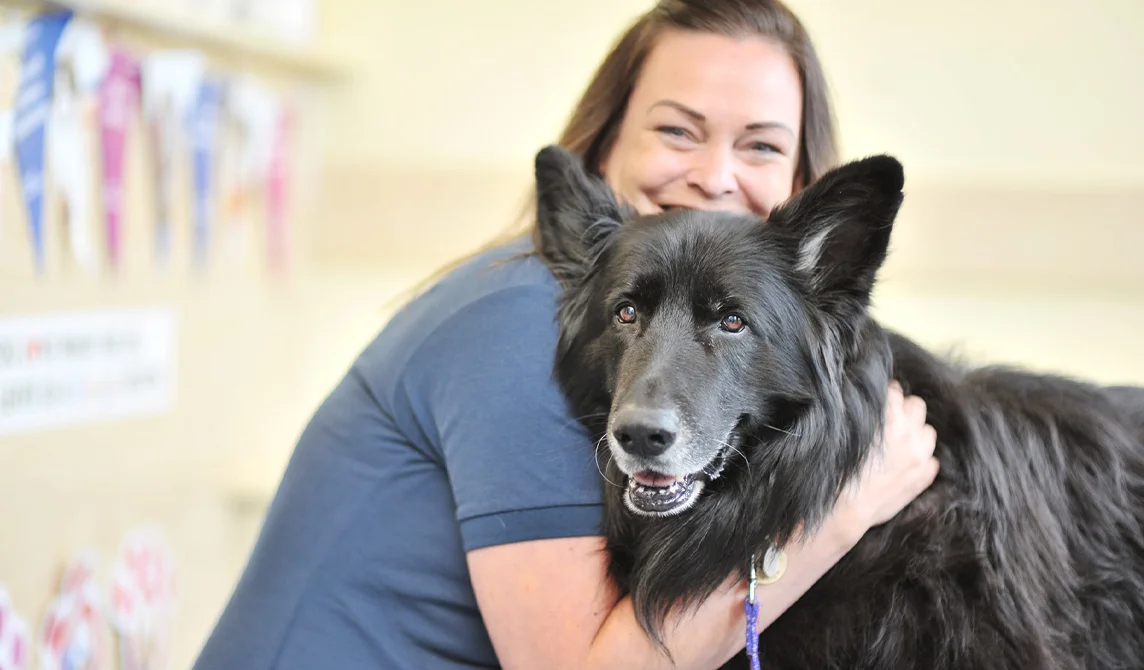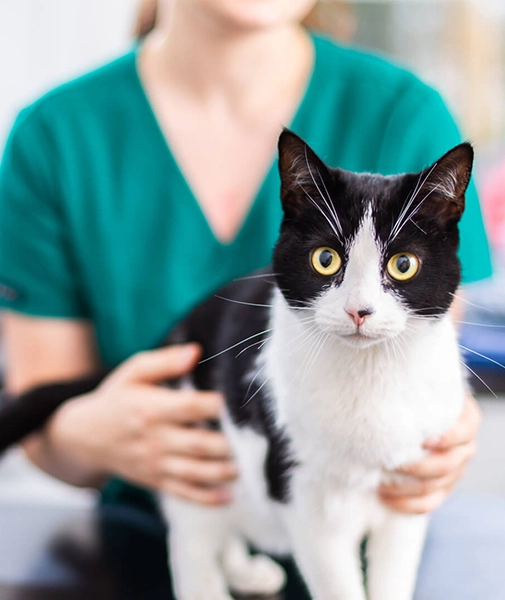About Our Vet Practice
Shipley Vets is your trusted partner in pet care in Shipley, West Yorkshire. We offer a comprehensive range of veterinary services, from routine check-ups and vaccinations to advanced surgeries and emergency care.

Who are we?
At Shipley Vets in West Yorkshire, we have a modern and fully equipped clinic to offer your pets the best possible care.
Our extensive laboratory allows us to run full blood profiles including blood electrolytes, proteins, liver and kidney factors, cholesterol, glucose, and red and white blood cell analysis. We are able to examine samples of cells from suspicious lumps and bumps (called fine needle aspirates) with the ability to prepare, stain and examine slides in the Shipley laboratory.
We have a high powered x-ray machine enabling us to take highly detailed x-rays of pets, from tiny rabbits to Great Danes. We also have an ultrasound scanner to allow non-invasive examinations of internal organs, and a full range of endoscopes for examining the oesophagus, stomach, small and large intestines (biopsies are often taken this way instead of having to surgically open up a pet to get samples) and for examining airways. The endoscopes are also used occasionally to retrieve items that have been swallowed and may be too dangerous to leave making their own way through the body (again instead of surgically opening up an abdomen of a dog or cat for instance).
Our hospital area is divided into separate dog and cat rooms, and kennels are built to minimise stress of your pets during their stay in the hosipal ward.
Our extensive laboratory allows us to run full blood profiles including blood electrolytes, proteins, liver and kidney factors, cholesterol, glucose, and red and white blood cell analysis. We are able to examine samples of cells from suspicious lumps and bumps (called fine needle aspirates) with the ability to prepare, stain and examine slides in the Shipley laboratory.
We have a high powered x-ray machine enabling us to take highly detailed x-rays of pets, from tiny rabbits to Great Danes. We also have an ultrasound scanner to allow non-invasive examinations of internal organs, and a full range of endoscopes for examining the oesophagus, stomach, small and large intestines (biopsies are often taken this way instead of having to surgically open up a pet to get samples) and for examining airways. The endoscopes are also used occasionally to retrieve items that have been swallowed and may be too dangerous to leave making their own way through the body (again instead of surgically opening up an abdomen of a dog or cat for instance).
Our hospital area is divided into separate dog and cat rooms, and kennels are built to minimise stress of your pets during their stay in the hosipal ward.

Meet the team
Lisa Powell
Practice Manager
Kate Barrett
BVetMed MRCVS Clinical Director
John Reilly
Veterinary Surgeon
Lisa Drake
Head Veterinary Nurse
Nichola Petty
RVN Veterinary Nurse
James Sapko
RVN Veterinary Nurse
Kammy Keach
RVN Veterinary Nurse
Alyson Farry
Animal Nursing Assistant
Claire Feather
Nursing Assistant
Heather Todd
Receptionist
Vanessa Kolodziej
Receptionist